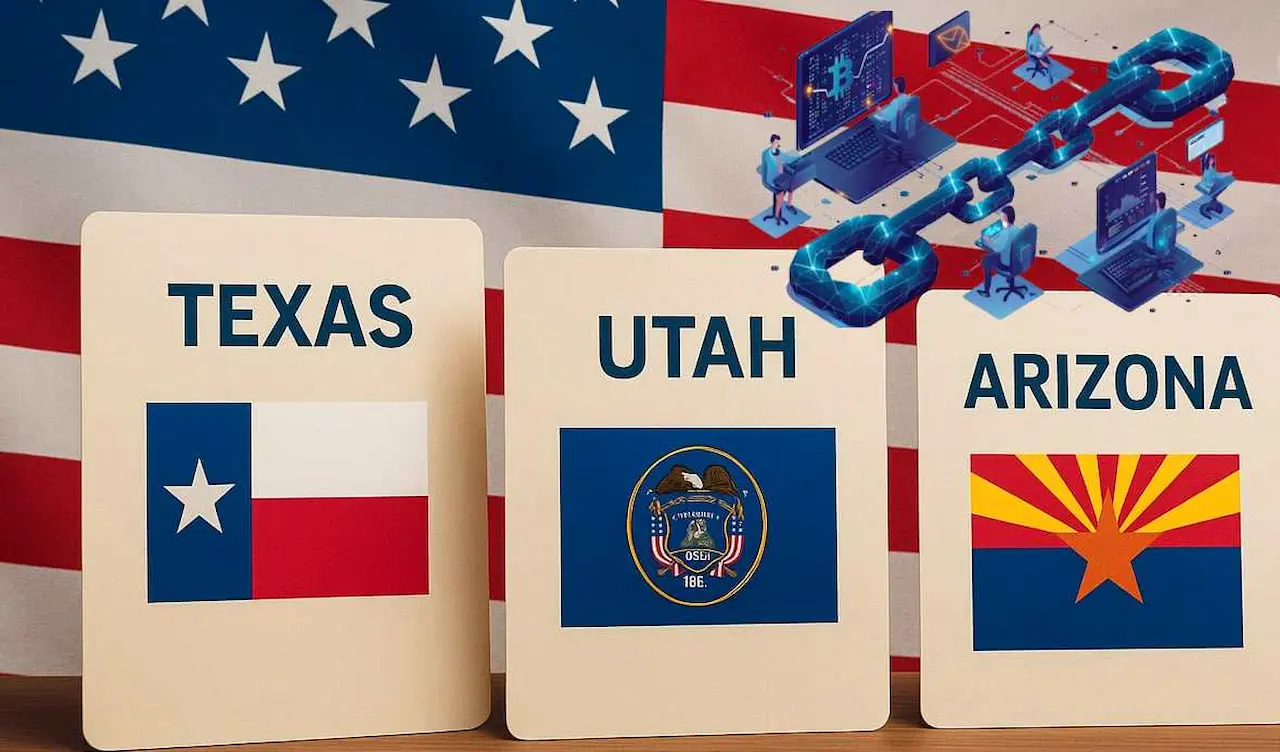An increasing number of US states are vying to become the country’s crypto capital as blockchain technology transforms from a trendy term to the foundation of the digital economy. Texas, Utah, and Arizona—three states that have firmly embraced crypto-friendly laws, blockchain technology, and regulatory clarity to support Web3 growth—are clearly in the lead, according to the most recent Blockchain Innovation Scorecard.
Their strategy heralds a new era of blockchain adoption in the US, one that is being spearheaded by state legislatures, academic institutions, and innovation hubs rather than federal organizations.
States Race to the Top in Crypto-Friendly Policies
The Blockchain Innovation Initiative released the scorecard, which rates each of the 50 states on their use of blockchain in public services, regulatory transparency, startup support, and Web3 integration in government and education. Texas took first place thanks to strong laws that support cryptocurrency mining and custody, as well as a laissez-faire attitude that has drawn hordes of miners and blockchain developers.
Utah, which stood out for its pilot projects in blockchain-based governance tools, regulatory sandboxes, and decentralized identity systems, followed closely behind. With its progressive regulations on digital tokens, blockchain voting systems, and fintech innovation hubs, Arizona completed the top three.
Friendly Laws, Big Incentives, Bigger Vision
These states are investing in the future rather than merely establishing legal frameworks. Research programs and degrees in blockchain are being offered by Texas universities. Utah is exploring e-voting and testing blockchain technology for secure digital identities. Arizona is progressing towards incorporating blockchain technology into its financial and property registration systems.
States like Texas, Utah, and Arizona are demonstrating how proactive legislation, local incentives, and tech-friendly governance can transform regions into global leaders in blockchain innovation, even as federal crypto regulations continue to be fragmented.
Also read: Ripple’s RLUSD Stablecoin Clears Up Major Misconceptions
